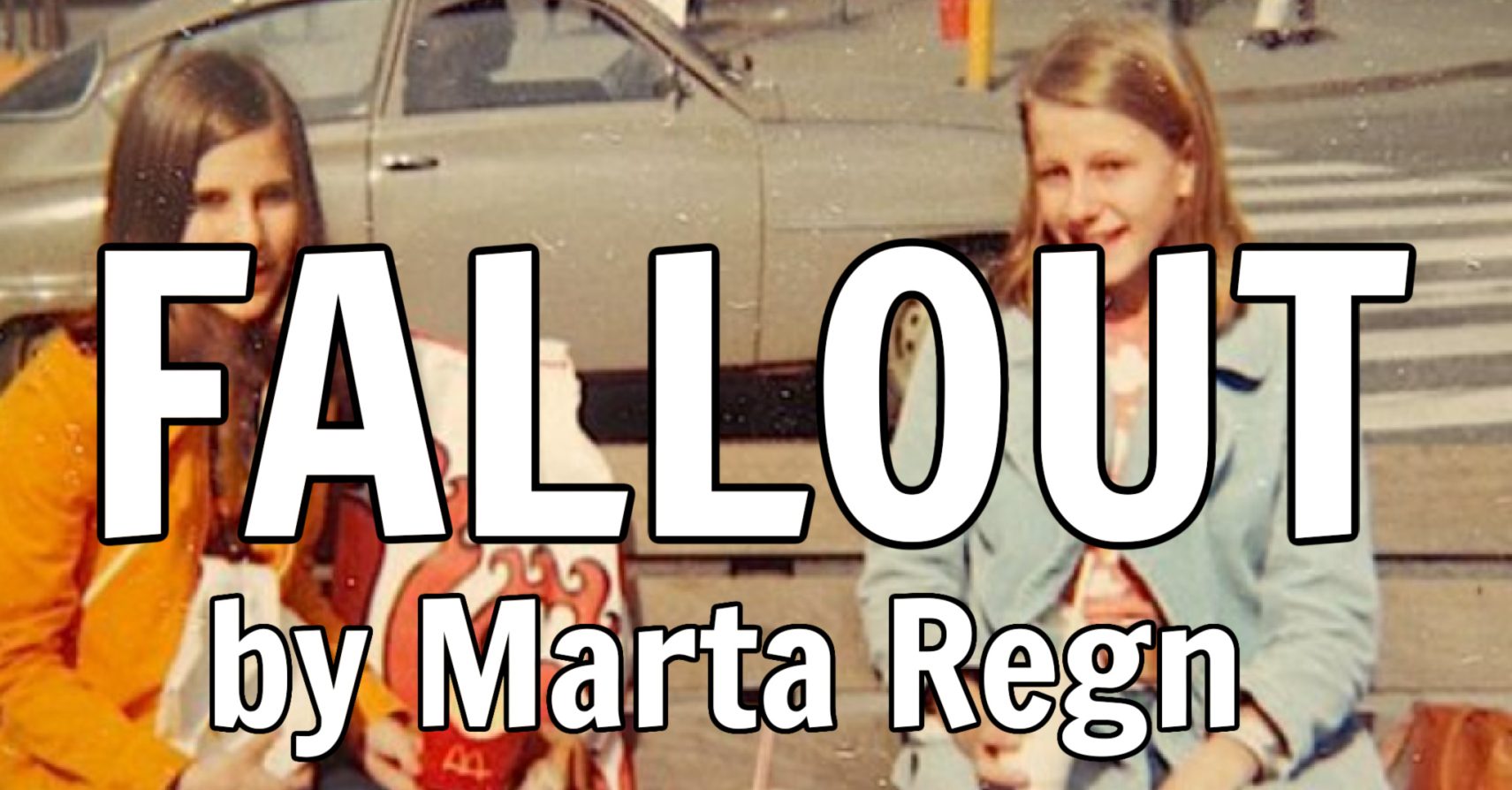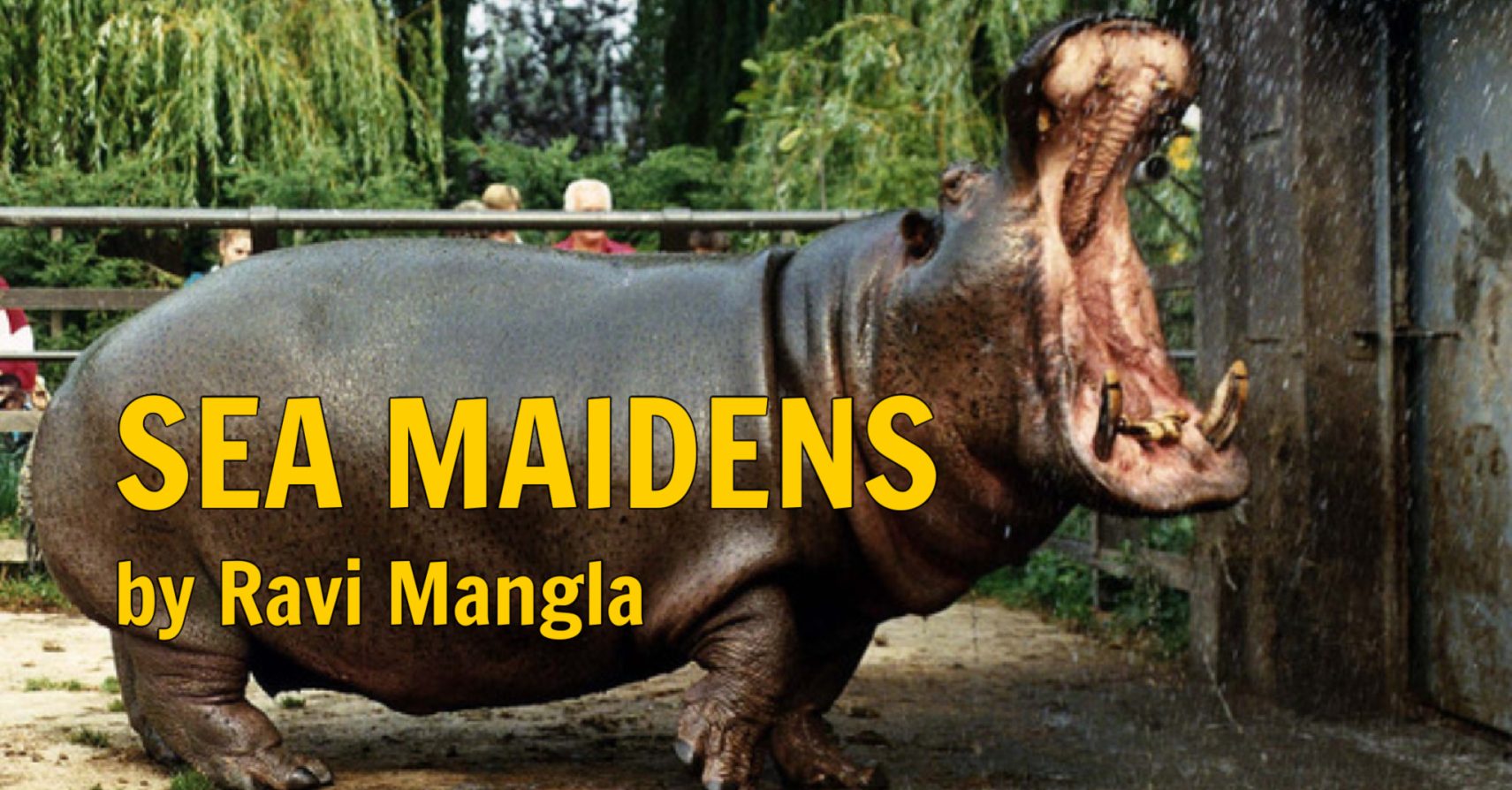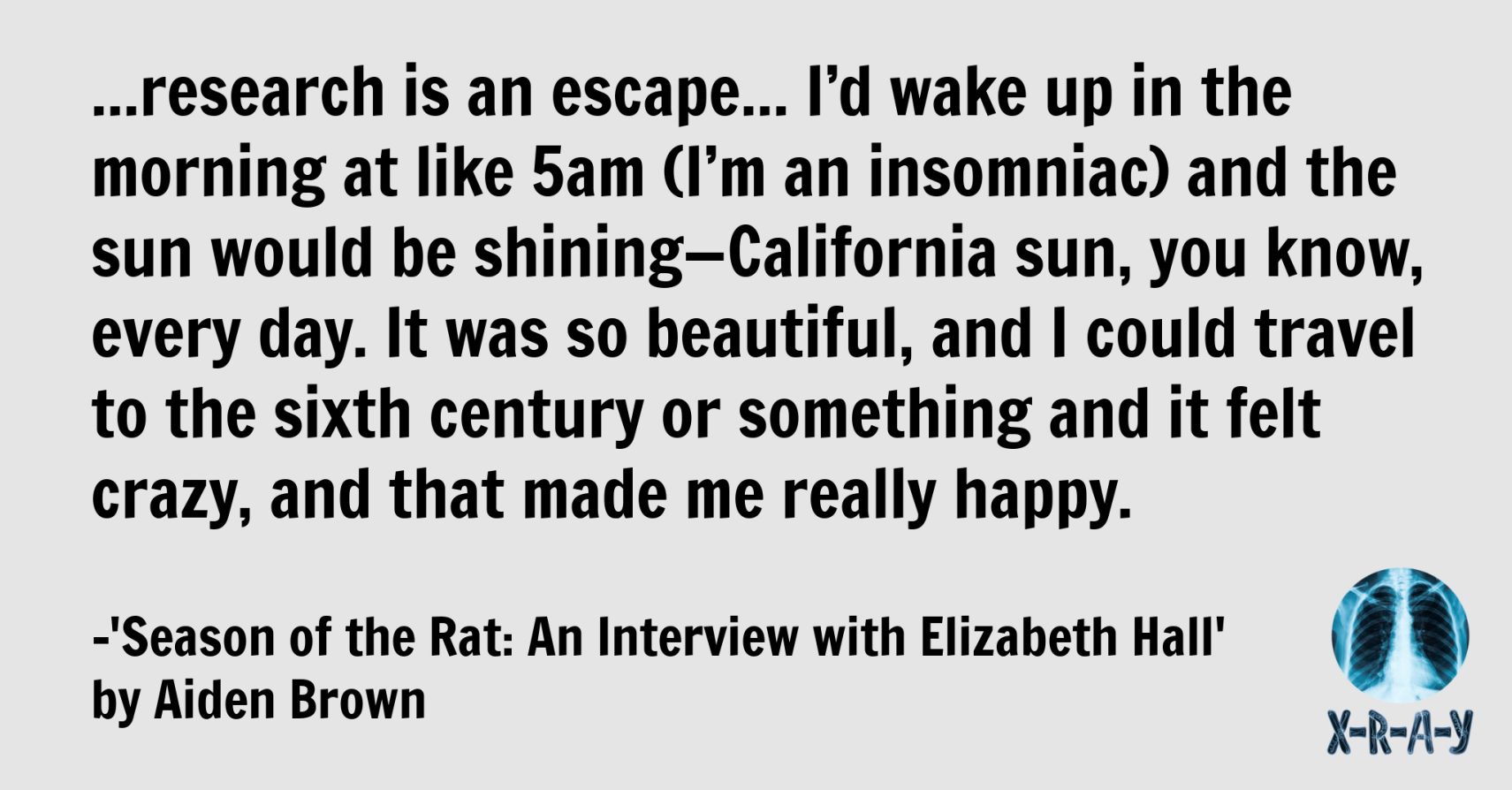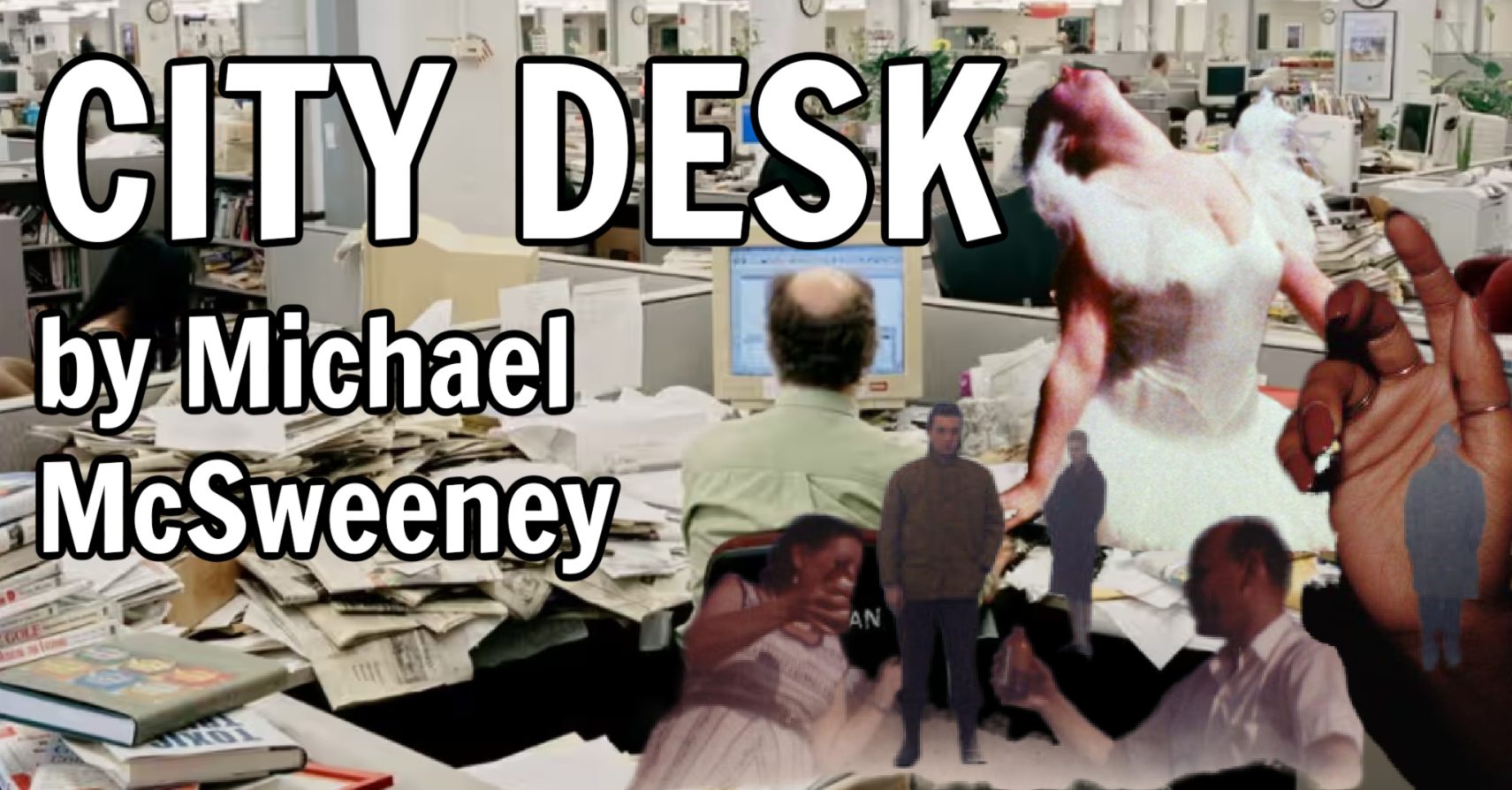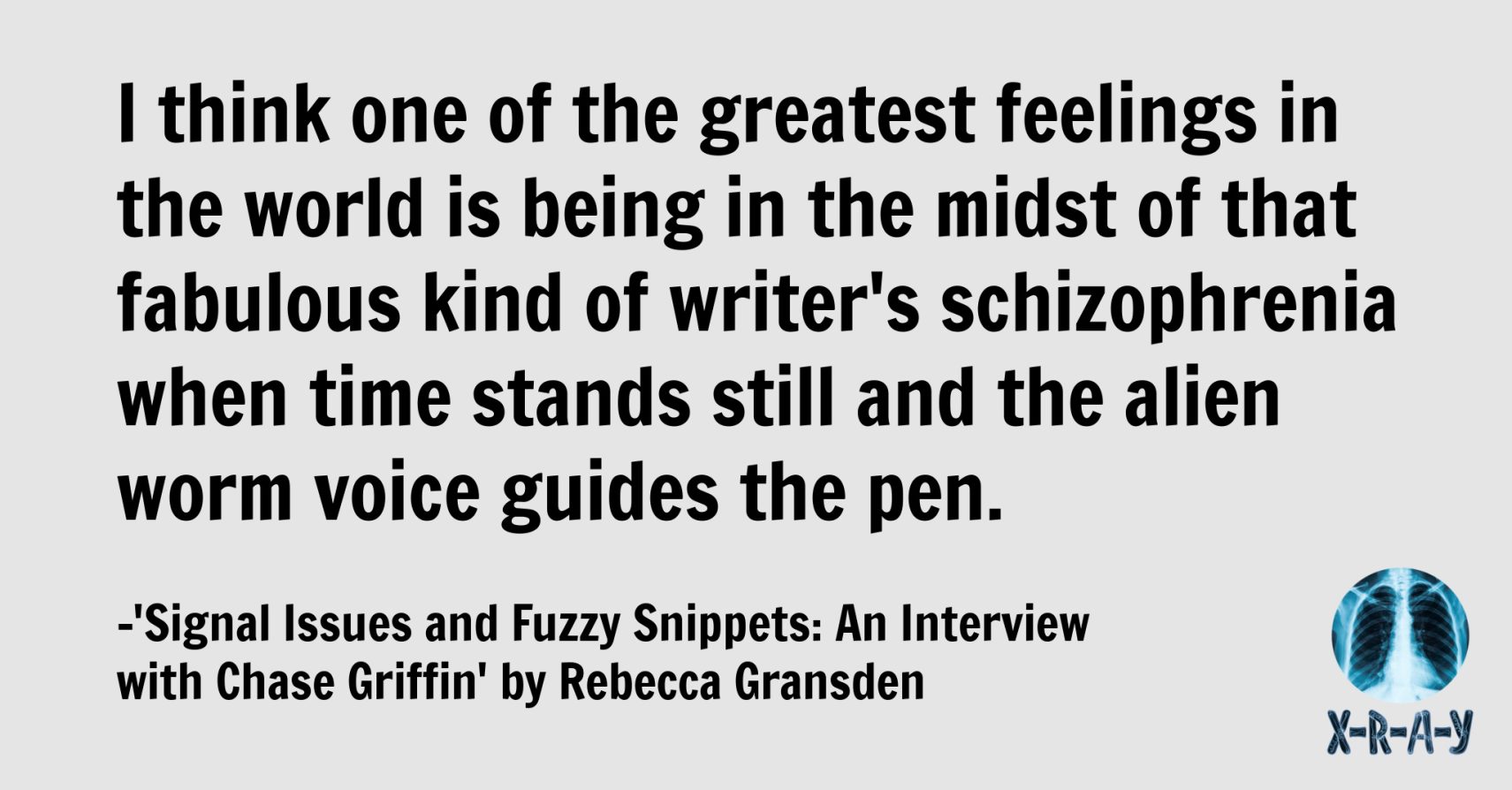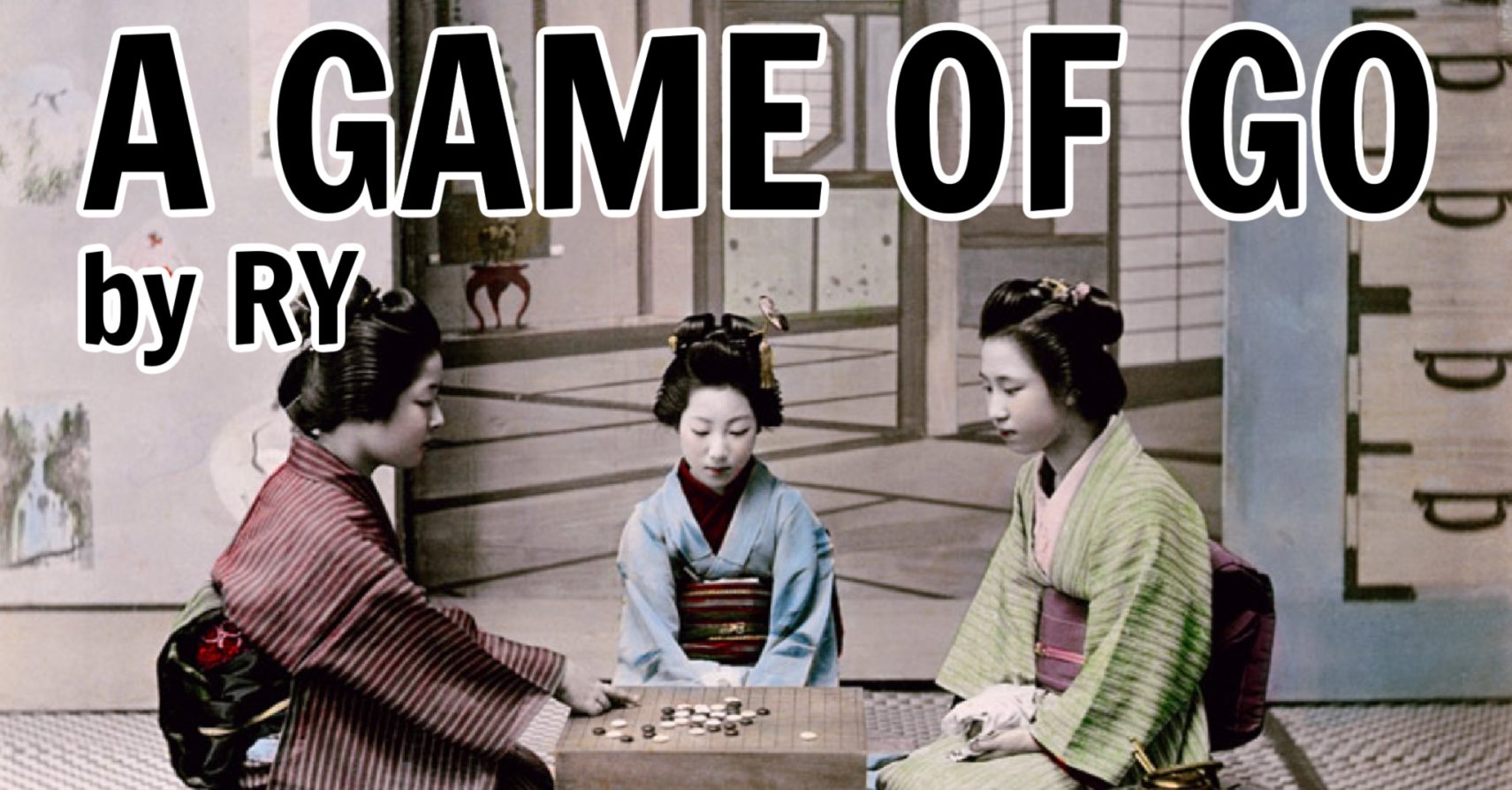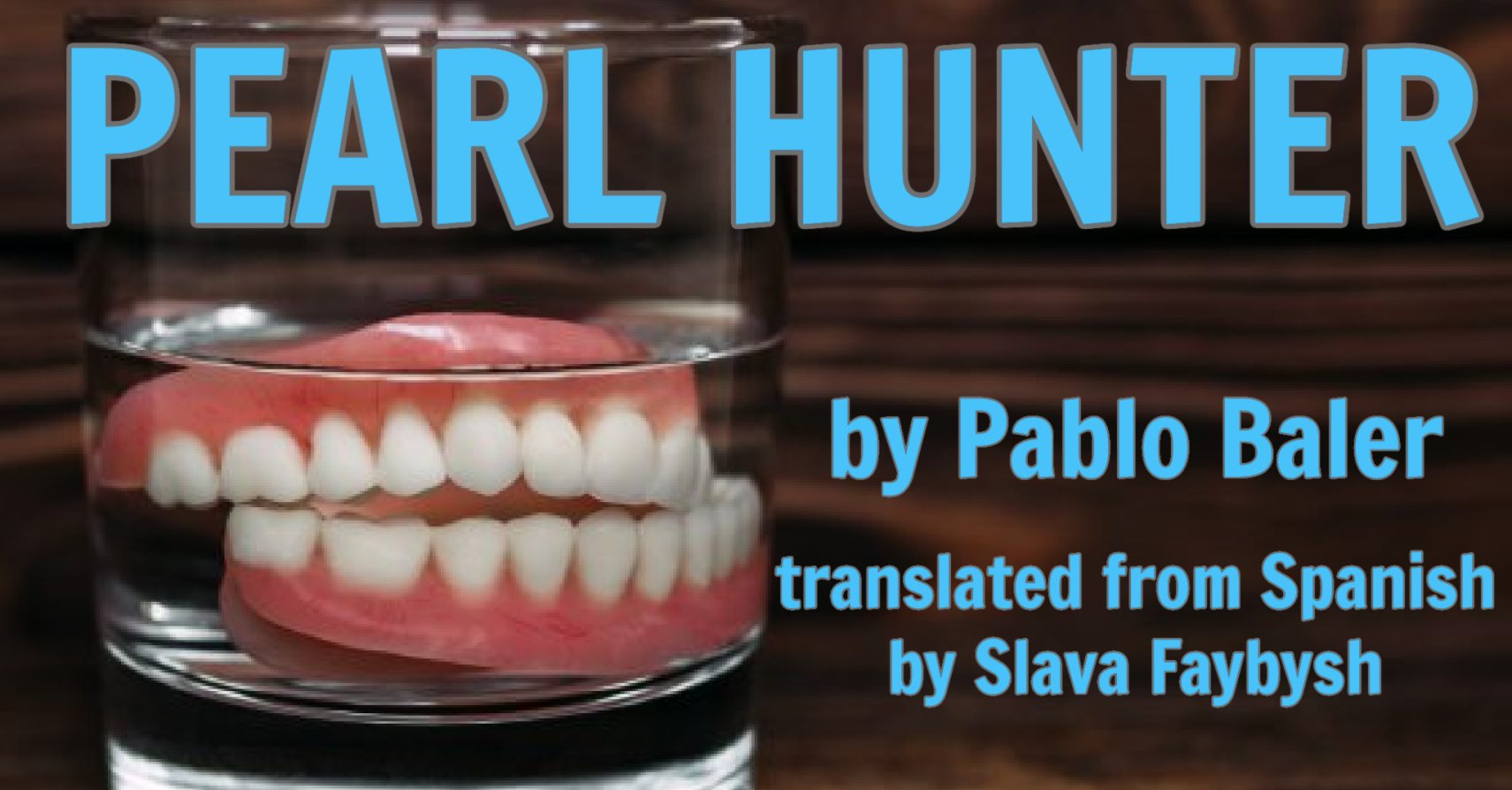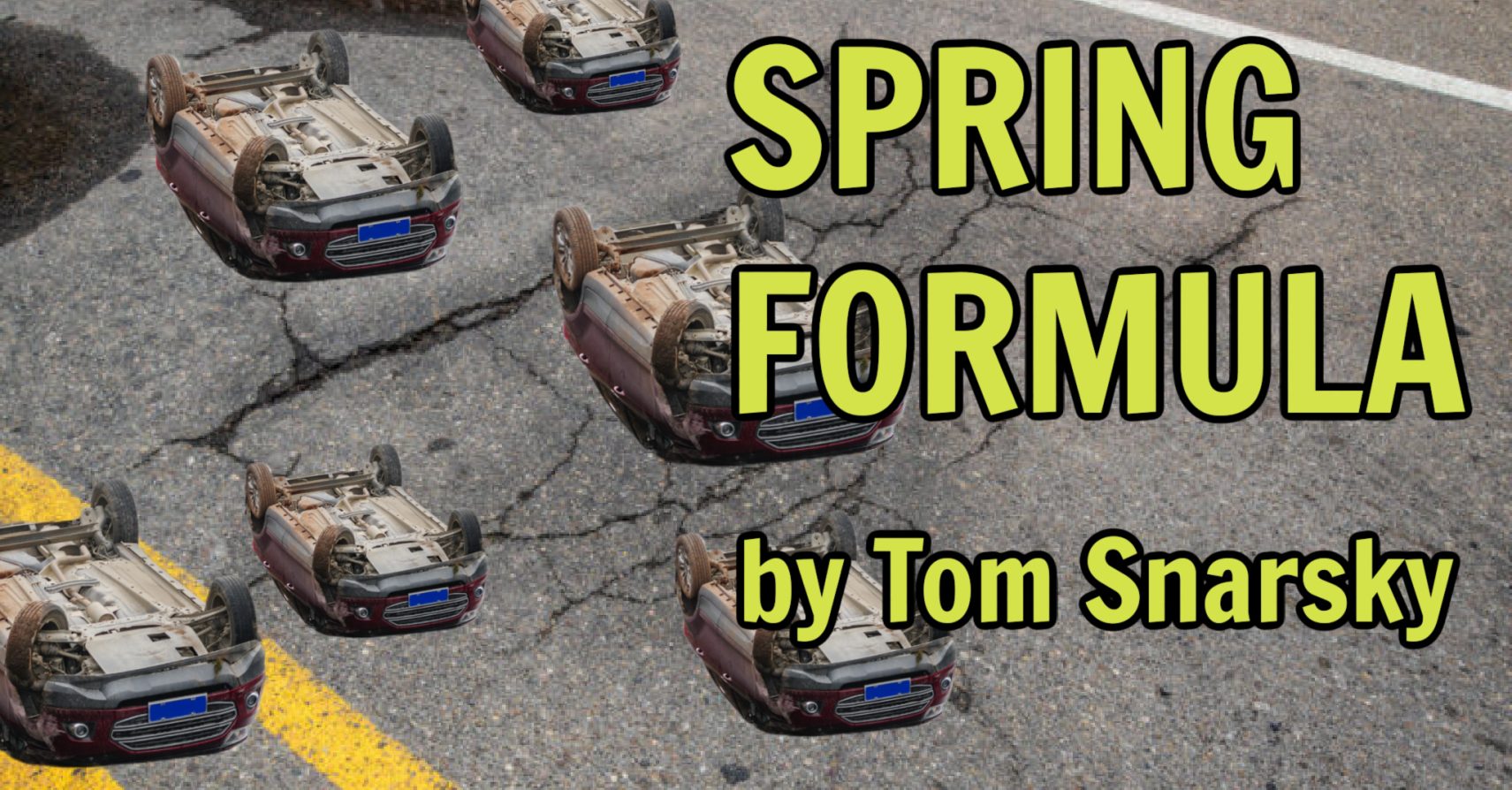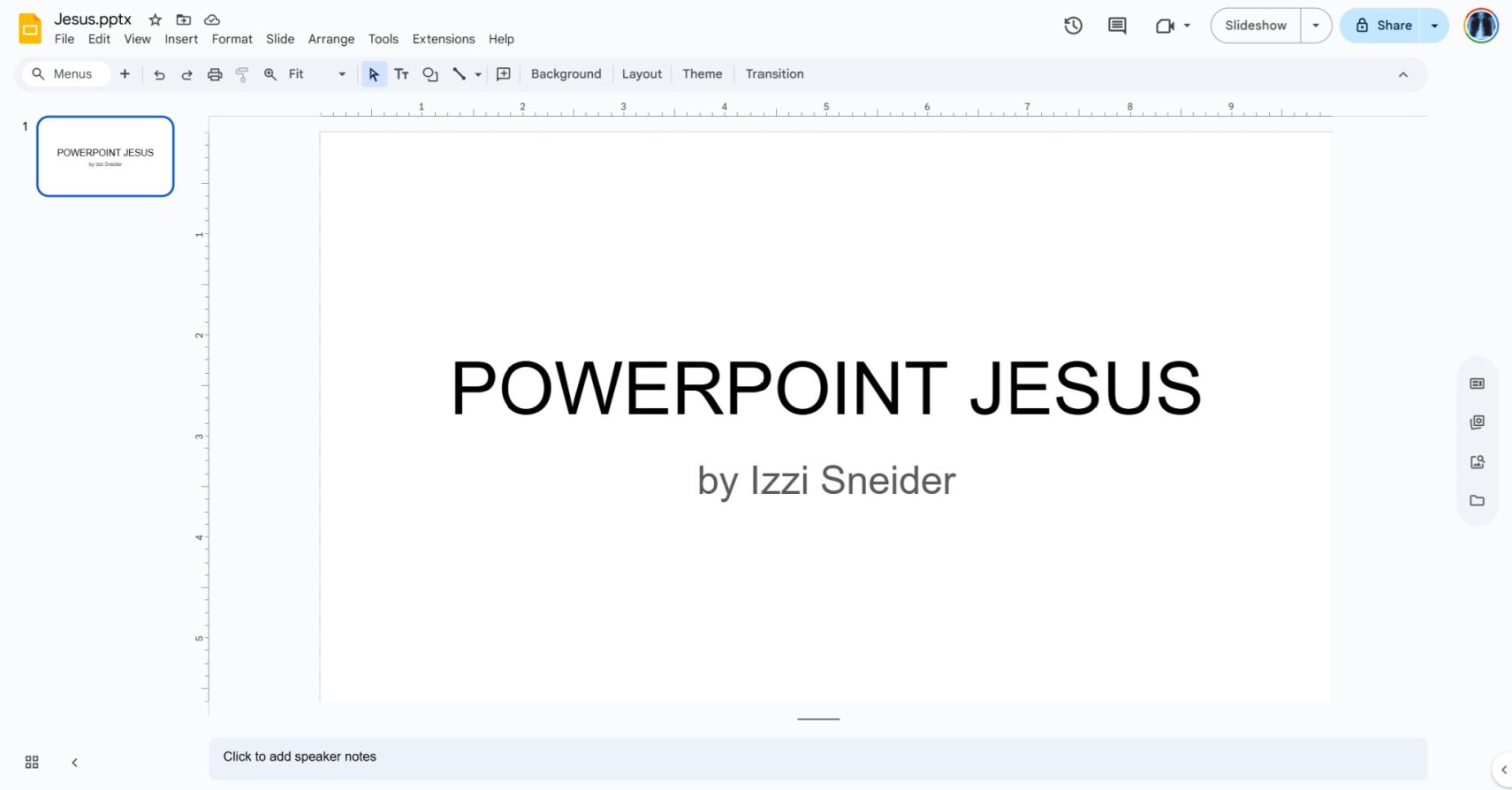
POWERPOINT JESUS by Izzi Sneider
I found the file by accident. It was tucked between Q3BudgetProjections.pptx and TeamSalesSeminar_2021(final_FINAL2).pptx on the shared drive. Jesus.pptx Just like that. I clicked it out of curiosity. Or maybe boredom. It’s hard to tell the difference between the two when you spend the day in an office staring at spreadsheets that mean nothing to you. The file was empty. One blank white slide. No title. No bullet points. No formatting. Just a white void. A warmth emanated from the screen. I stared at it for a while. I bathed in its glow. My body slackened. My thoughts dulled to a…

